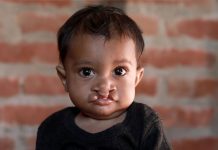Adding excessive amounts or too little iron to your diet may lead to serious health issues such as cardiovascular disease, liver problems, and iron deficiency.
Wondering, how much iron should you take? Intaking the right amount of iron depends on multiple factors like age, sex, and health conditions.
This article explains how much iron an individual requires, the factors that influence the needs, and foods to increase the iron content in the body.
Iron – Why It Is So Important?
Iron is an essential mineral necessary for numerous significant functions in the body. It plays a major role in oxygen supply. It attaches to the haemoglobin and helps carry red blood cells from the lungs to other tissues of the body. Combined with myoglobin, it is used to store oxygen in muscle.
Without enough iron, an individual may develop a condition called anaemia- one of the nutrients deficiency prevalent worldwide. Symptoms may include pale skin, headache, dizziness, fatigue, poor appetite, unusual cravings, etc.
To increase the iron in the blood, one must intake iron-rich foods in their diet. Iron can be found in foods. It is categorized into two types – heme and non-heme iron.
“Heme” is a Greek word that refers to “blood.” This sort of iron can be obtained from animal protein, fish, and beef whereas non-heme can be found in greens, legumes, and nuts.
How Much Iron Should I Consume Daily?
Depending on the age and sex the daily iron dosage will vary.
Infants and Children up to 13 Years Old
The iron needed for infants to late childhood kids is identical. A newborn baby requires the least amount of iron, they are usually born with iron absorbed from the mother’s blood.
| Age Group | Recommended amount of iron a day |
| Between 7 to 12 month old infants | 11 mg per day |
| Between 1 to 3 years old | 7 mg per day |
| Between 4 to 8 years old | 10 mg per day |
| Between 9 to 13 years old | 8 mg per day |
Teenagers (14-18)
Boys between the ages of requires 11 mg of iron per day. This supports the growth of children at this age.
However, compared to boys, teenage girls need more iron. Besides the support and growth, they need an iron supplement of 15 mg daily to compensate for the iron they lose through bleeding.
Adult Men
By the age of 19, physical and brain growth will slow down. Their iron requirements sustain during adulthood.
Younger and older adult men require 8 mg per day to maintain their health. Athletes need more iron as they tend to dehydrate a lot.
Adult Women
An average person stores 1-3 mg of iron in their body. 1 mg iron decreases as a result of the shedding of the skin and mucosal surface lined in the gut.
During menstruation, women need more iron. Because the blood stores about 70% of the body’s iron. The body loses about 2 mg per day while the blood is shed from the lining of the uterus.
Women between 10 to 50 years of age require 18mg of iron per day. Female athletes need more iron as they sweat a lot.
Above 51 and older need 8 mg of iron per day at onset of the menopause.
Transgender
An adult transgender who has medically transitioned needs 8 mg of iron per day. If they did not undergo any medical transition their need may differ.
Iron Requirement during Pregnancy and Lactation
To support the needs of the fetus the need rises to 27 mg. During pregnancy, the iron level drops so women need 9 – 10 mg of iron depending on their age.
Foods to Get Adequate Iron
From seeds to meat, there are a lot of foods that contain iron. Here are some iron-rich foods to include in the diet
- Chickpeas
- pumpkin seeds
- black beans
- Legumes
- Spinach
- Sesame seeds
- Dry fruits
- Red kidney beans
- Fortified breakfast cereals
- Soya beans
- Egg
- Broccoli
- Kale
- Apples
Avoid Taking Too Much Iron
Iron overload is toxic to health, it may damage the liver, heart, and other crucial organs. Remember the highest amount you can consume is 40 – 45 mg per day depending on the individual’s age and sex. Exceeding this amount is considered a risk.














